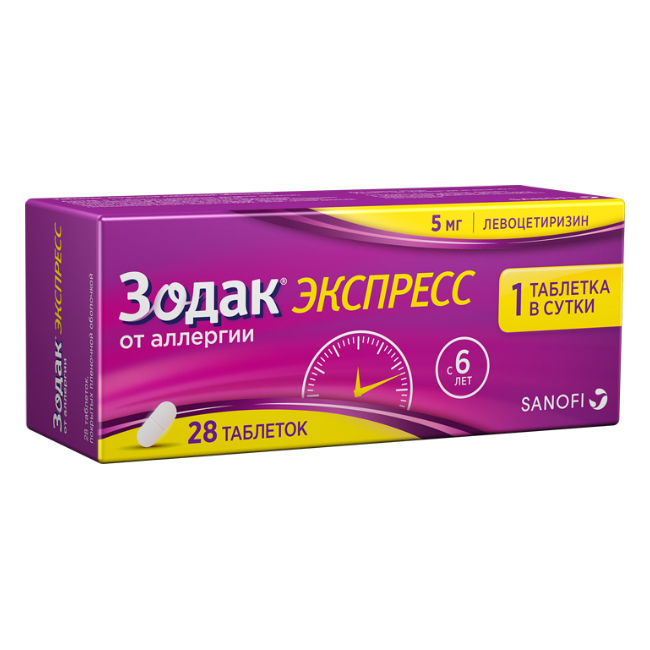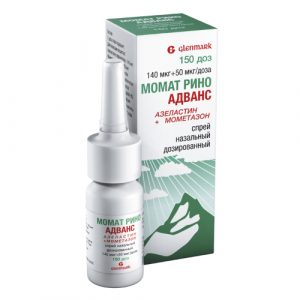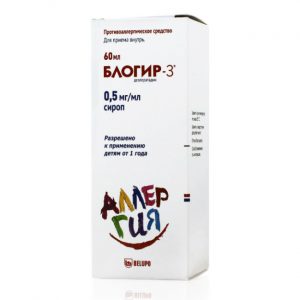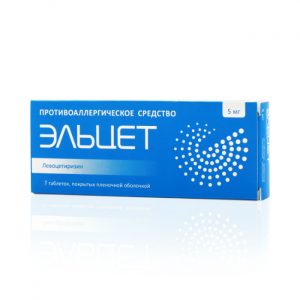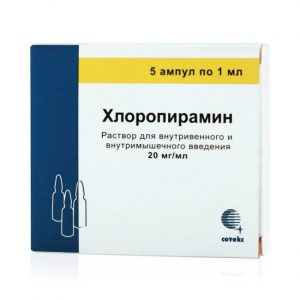Description
Release form
Tablets
Packing
28 pcs.
Pharmacological action
Zodak – antiallergic.
Pharmacodynamics
Cetirizine belongs to the group of competitive histamine antagonists, blocks H1-histamine receptors, practically has no anticholinergic and antiserotonin effect. It has a pronounced anti-allergic effect, prevents the development and facilitates the course of allergic reactions. It has antipruritic and antiexudative effect. It affects the early stage of allergic reactions, and also reduces the migration of inflammatory cells and inhibits the release of mediators involved in the late allergic reaction. Reduces capillary permeability, prevents the development of tissue edema, relieves spasm of smooth muscles. Eliminates a skin reaction to the introduction of histamine-specific allergens, as well as cooling (with cold urticaria). In therapeutic doses, it has almost no sedative effect. Against the background of course administration, tolerance does not develop.
The drug begins after 20 minutes (in 50% of patients), after 1 hour (in 95% of patients) and persists for 24 hours.
Pharmacokinetics
Absorption. After oral administration, cetirizine is rapidly and well absorbed from the digestive tract. Tmax – approximately 30-60 minutes.
Food intake does not significantly affect the amount of absorption, however, in this case, the absorption rate is slightly reduced.
distribution. Cetirizine binds to plasma proteins by approximately 93%. The value of Vd is low (0.5 l / kg), the drug does not penetrate into the cell. The drug does not penetrate the BBB. Penetrates into breast milk.
Metabolism. Cetirizine is poorly metabolized in the liver with the formation of an inactive metabolite. With 10-day use at a dose of 10 mg, drug accumulation is not observed.
Withdrawal. About 70% – through the kidneys, mainly unchanged.
Systemic clearance is about 54 ml / min.
After a single dose, the T1 / 2 value is about 10 hours. In children aged 2 to 12 years, the T1 / 2 value decreases to 5-6 hours. Hemodialysis is ineffective.
Pharmacokinetics in special patient groups
Patients with impaired renal function. In case of impaired renal function (Cl creatinine below 11 31 ml / min) and in patients on hemodialysis (Cl creatinine less than 7 ml / min), the T1 / 2 value increases by 3 times, Cl decreases by 70%.
Elderly patients and patients with chronic diseases. Against the background of chronic diseases and in elderly patients, there is a 50% increase in T1 / 2 and a 40% decrease in Cl
Patients with chronic liver diseases (hepatocellular, cholestatic and biliary cirrhosis). In patients with cirrhosis of the liver, there is an increase in T1 / 2 by 50% and a decrease in total clearance by 40% (correction of the dosage regimen is required only with a concomitant decrease in glomerular filtration rate).
Indications
Various allergy manifestations
seasonal and perennial allergic rhinitis and conjunctivitis
itchy allergic dermatoses
hay fever
urticaria (including chronic idiopathic).
Contraindications
hypersensitivity to the components of the drug
pregnancy
lactation period
children under 6 years of age (for tablets) up to 1 year (for drops).
Precautions: chronic renal failure of moderate and severe severity (dosage adjustment is required), old age (possibly reduced glomerular filtration).
Use during pregnancy and lactation
Zodak is not used during pregnancy and lactation.
Special instructions
Patients with impaired liver and / or kidney function and the elderly should consult a doctor before taking the drug (see “Pharmacokinetics”, “Dosage and Administration”).
Influence on the ability to drive a car or perform work that requires an increased speed of physical and mental reactions. During the treatment period it is necessary to refrain from engaging in potentially hazardous activities, requiring increased concentration of attention and speed of psychomotor reactions.
The simultaneous use of drugs, depressing the central nervous system, alcohol is not recommended.
Drops do not contain sugar (saccharin is used as a sweetener), therefore, people with diabetes can also be prescribed.
Composition
Active ingredient: cetirizine dihydrochloride 5 mg
Excipients: lactose monohydrate, corn starch, povidone 30, magnesium stearate
Dosage and administration
Zodak administered orally, regardless of food intake. Before taking, dissolve the drops in water. Coated tablets should be swallowed whole with a little water.
For children from 2 to 6 years old – 5 mg of cetirizine once a day or 2.5 mg of cetirizine 2 times a day, morning and evening.
Side effects
From the digestive system: dry mouth, dyspepsia.
From the side of the central nervous system: headache, drowsiness, fatigue, dizziness, agitation, migraine.
Allergic reactions: skin rash, angioedema, urticaria, pruritus.
Overdose
Symptoms: possible drowsiness, lethargy, weakness, fatigue, headache, tachycardia, increased irritability, urinary retention, dry mouth, constipation (most often when taking 50 mg of cetirizine per day).
Treatment: symptomatic therapy. Gastric lavage, the appointment of activated carbon. No specific antidote has been identified. Hemodialysis is ineffective.
Storage conditions
At a temperature not exceeding 25 ° C.
Deystvuyuschee substances
Levocetirizine
Form of Treatment
tablets
Appointment
Detyam over 6 years, for Adults
Indications
Quincke’s edema, Urticaria, Allergic rhinitis, Allergic conjunctivitis, Dermatosis, Pollinosis, Allergy, Skin allergies itching
Possible product names
ZODAK EXPRESS 0.005 N28 TABLE P / O
ZODAK EXPRESS TAB. P.P.O. 5MG No. 28
ZODAK EXPRESS TAB. P / O CAPTURE. 5 MG 28
Zodak Express tab. p.p. 5 mg N28 Czech Republic
Zodak express tablets coated film 5 mg 28 pcs
